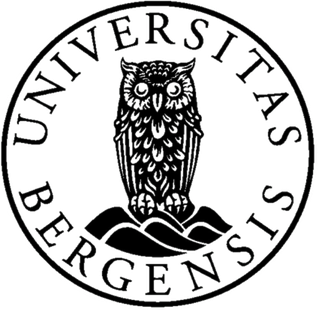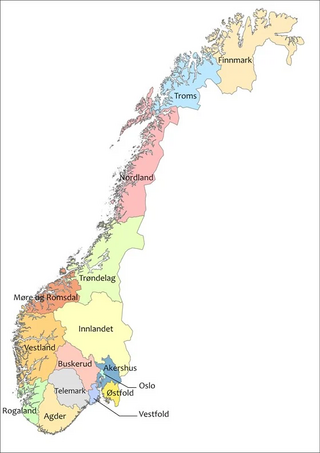
The University of Bergen is a public research university in Bergen, Norway. As of 2021, the university had over 4,000 employees and 19,000 students. It was established by an act of parliament in 1946 consolidating several scientific institutions that dated as far back as 1825. It is Norway's second-oldest university, and is considered to be one of the nation’s four so-called "established universities." It has faculties and programmes in all the academic fields typical of a classical university, as well as such degree programmes as medicine and law that, traditionally, only the “established universities” are authorized by law to offer. It is also one of Norway's leading universities in many of the natural sciences, including marine research and climate research. It has consistently been ranked in the top 200 or top one percent of universities in the world, and as one of the best 10 or best 50 universities worldwide in some fields, such as earth and marine sciences. It is part of the Coimbra Group and of the U5 group of Norway's oldest and highest-ranked universities.
Widerøes Flyveselskap AS, trading as Widerøe, is a Norwegian airline, and is the largest regional airline operating in the Nordic countries. The airline's fleet of 44 Bombardier Dash 8 aircraft, with three more on order, and 3 Embraer E190-E2 aircraft, serves over 40 domestic and international destinations. Widerøe has a turnover of 3.5 billion kr; carries 2.8 million annual passengers; has 3,500 employees and performs 450 take-offs and landings each day.

There are 15 counties in Norway. The 15 counties are administrative regions that are the first-level administrative divisions of Norway. The counties are further subdivided into 357 municipalities. The island territories of Svalbard and Jan Mayen are outside the county divisions and they are ruled directly from the national level. The capital city of Oslo is both a county and a municipality.
.no is the Internet country code top-level domain (ccTLD) for Norway. Norid, the domain name registry, is based in Trondheim and is owned by the state-owned Uninett and operates under supervision of the Norwegian Communications Authority. As of December 24, 2022 there were 843,749 registered .no domains. Organizations with a presence in Norway and registration at the Brønnøysund Register Centre are limited to 100 domains each. Individuals residing in Norway may register in the second-level domain priv.no and, as of June 17, 2014, directly under .no. Other second-level domains exist for organizations of certain types, such as municipalities and schools. The strict regulations have resulted in near-absence of cybersquatting and warehousing.

Lufttransport is a Norwegian helicopter and fixed-wing airline that operates primarily air ambulance helicopters and planes for the Norwegian and Swedish governments. In addition the airline offers services including surveillance for the Norwegian Coast Guard, transport of ship pilots and scheduled air transport in the Norwegian territory of Svalbard.
Stiftelsen Norsk Luftambulanse is a Norwegian humanitarian organisation, organised as a non-profit foundation. It primarily promotes and operates helicopter air ambulance services. As of 2014, they operate seven Eurocopter EC135 and one EC145 helicopters out of seven bases in Norway, based on contracts with the state through the Norwegian Air Ambulance. In Denmark, they operate three EC135 out of three bases.

The University Centre in Svalbard is a Norwegian state-owned limited company that is involved in research and provides some higher education in Arctic studies. The company is wholly owned by the Ministry of Education and Research, and the universities of Oslo, Bergen, Tromsø, NTNU and NMBU appoint the board of directors. It is led by a director appointed by the board for a four-year term. The centre is the world’s northernmost research and higher education institution, in Longyearbyen at 78° N latitude. The courses offered fall into five main science disciplines: Arctic biology, Arctic geology, Arctic geophysics, Arctic technology and Arctic safety.
Siviløkonom is an academic degree issued within the field of business administration. It consists of a 3 year bachelor's degree followed by a two years masters degree and is also a professional title in Norway, obtained after the total of 5 years of studies. The title is protected and can only be used by persons having met certain qualifications as directed by the Norwegian Ministry of Education and Research. It is mainly offered by nine institutions after the completion of a Master of Science in Business Administration.
The Government agencies of Norway are state-controlled organizations that act independently to carry out the policies of the Government of Norway. The government ministries are relatively small and merely policy-making organizations, allowed to control agencies by policy decisions but not by direct orders. A minister is explicitly prohibited from interfering with the day-to-day operation in an agency or the outcome in individual cases. While no minister is allowed to give orders to agencies personally, they are subject to decisions made by the government. Also, the minister is normally the instance of appeals for agency decisions.
The Royal Ministry of Education and Research is a Norwegian government ministry responsible for education, research, kindergartens and integration. The ministry was established in 1814 as the Royal Ministry of Church and Education Affairs.

Higher education in Norway is offered by a range of ten universities, nine specialised universities, 24 university colleges as well as a range of private university colleges. The national higher education system is in accordance with the Bologna process, with bachelor's degrees, master's degrees and doctoral degrees. Acceptance is offered after finishing upper secondary school and meeting general university admissions certification.
The University college reform was a reform throughout Norway where 98 smaller colleges were transformed into 26 larger university colleges from 1 August 1994. In addition a number of fine art educations were merged to two National Academies of the Arts, in Oslo and in Bergen.

The climate of Norway is more temperate than could be expected for such high latitudes. This is mainly due to the North Atlantic Current with its extension, the Norwegian Current, raising the air temperature; the prevailing southwesterlies bringing mild air onshore; and the general southwest–northeast orientation of the coast, which allows the westerlies to penetrate into the Arctic. The January average in Brønnøysund is 15.8C (28.6F) higher than the January average in Nome, Alaska, even though both towns are situated on the west coast of the continents at 65°N. In July the difference is reduced to 3.2C (5.8F). The January average of Yakutsk, in Siberia but slightly further south, is 42.3C (76.1F) lower than in Brønnøysund.
forskning.no is an Oslo-based online newspaper established by the Research Council of Norway in 2002. It publishes news about science and research from Norway and abroad. The web site is run by Foreningen for drift av forskning.no, a non-profit organization which has 78 research institutions as members. forskning.no has its own writers and journalists and freelance writers. In addition articles are submitted by the research institutes and then edited by forskning.no staff before being published. Its English-language version is known as sciencenorway.no.
The Norwegian Correctional Service is a government agency responsible for the implementation of detention and punishment in a way that is reassuring for the society and for preventing crimes. The agency is governed by the Norwegian Ministry of Justice and Public Security.

The Centre for Advanced Study at the Norwegian Academy of Science and Letters is an independent research foundation funded by the Norwegian Ministry of Education and Research. CAS is located in Oslo, Norway.
The Research Council of Norway's Award for Excellence in Communication of Science is awarded annually by the Research Council of Norway, a Norwegian government body. According to its bylaws, the prize is to be given in order to "reward and stimulate the dissemination of research to a broad audience. The dissemination must be of high quality in both form and content." The price is worth 500000 kr.

The VID Specialized University is a Norwegian accredited, private, non-profit specialized university headquartered in Oslo. VID has 6,000 students and nearly 700 employees. It is one of three private specialized universities in Norway, alongside BI and MF.








